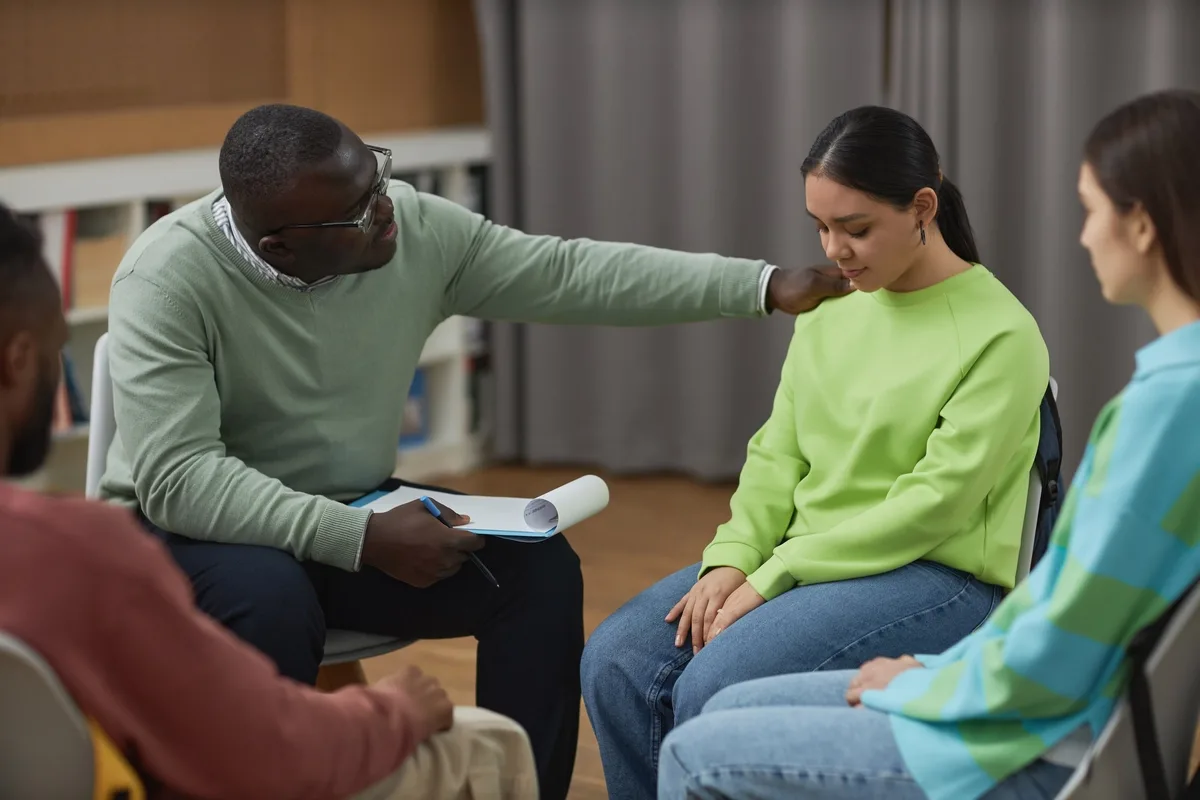24/7 Helpline:
(866) 899-221924/7 Helpline:
(866) 899-2219
Learn more about PTSD Treatment centers in Sycamore
PTSD Treatment in Other Cities

Other Insurance Options

Sliding scale payment assistance

MVP Healthcare

Ceridian

Magellan

Multiplan

Sutter

Private insurance

Evernorth

BlueShield

Optima

EmblemHealth

Health Choice

Highmark

Providence

GEHA

Choice Care Network

PHCS Network

BlueCross

State Farm

Anthem











